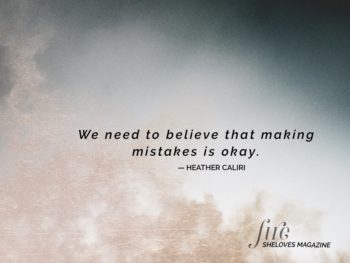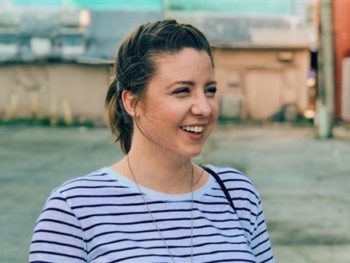
When people learn I can speak Spanish, their first question is, “Are you fluent?”
And for a long time, my answer was no. I speak Spanish well, I reasoned, but I was hardly fluent. If I have to tell a story about my hopes, dreams, fears in the past, I get tangled in the verb tenses. My vocabulary has huge holes. Slang is a constant trap. And if I meet someone from a new region, I struggle to understand them.
I wasn’t nearly competent enough to feel fluent.
Then while I lived in Argentina a few years ago, a new acquaintance complimented my Spanish. “You can speak without thinking,” she said. “I wish my English were that fluent.”
I opened her mouth to complain again about the imperfections of my Spanish, and then I shut it. And said “Thank you.”
Because the real meaning of “fluent” had just popped into my brain.
Fluid. Flowing. Pouring out.
I have a long way to go before I feel expert in Spanish. But fluent? I’m already there. I make grammatical mistakes with every sentance, I am lacking key vocabulary, I miss meanings all the time, but I can mostly talk without consulting my inner verb conjugator.
That is fluent.
I am fluent.
***
I think often I think of acheivements as being over there. Across a high wall that is, like rainbows, always a little bit farther away. I am waiting to be better at writing poetry, fiction, essays. Better at marketing myself. Better at supporting my childrens’ learning, or practicing spiritual discipline. I think that someday, I will feel I’ve arrived. I feel that I have not nearly gone far enough to call myself “fluent” at any of those things.
But I’ve noticed the cost of seeing “competence” as a moving target. It makes getting started too hard. It undermines the achievements I make. It makes me reluctant to start something new, because the bar for competence is set so high.
Back when I arrived in Argentina as a college student, I envied those foreigners who had less grammar than I did but just talked, a kind of pidgen Spanish, that nonetheless made people laugh, opened doors, and expressed personality. While I was parsing verbs, they were communicating. I had book knowledge—they had more fluency.
That’s not to knock book knowledge—my base in grammar made me progress more rapidly once I was using Spanish. But fluency does not necessarily mean expertise. It means daily plodding that rarely looks glamorous.
Over and over, I’m seeing that the real way you gain fluency is not through competence or perfection, but through sold-out bravery. You get better at something not by magically getting it all right ahead of time, but by being willing to try.
I sometimes long for that a Platonic ideal of expertise, that occurs without failure, without grammatical mistakes, and without sticking my foot in my mouth. But that kind of fluency doesn’t exist. The only kind of fluency available starts in a labyrinth of mistakes and incompetence.
It takes bravery to start walking through that maze, bewildered and confused. It takes humility and perseverance. But in the end, when you emerge out the other side, you find your perspective has changed, your very character has changed, and that the world you’re walking in is bigger, brighter, and holier than you’d ever thought possible.
Image credit: Alex Gage














 Six ways to conquer a terrifying first step
Six ways to conquer a terrifying first step
That’s an interesting perspective on fluent. It makes sense. I tend to argue with people who compliment some of my abilities, because I can’t meet the standards I’ve set. Unrealistic, to be sure. I’m also learning to stop and say thank you. It’s taking a lot of work.
SO tempting to argue 🙂 And weird how hard it is to simply accept our successes and abilities as the good gifts they are.
“Over and over, I’m seeing that the real way you gain fluency is not through competence or perfection, but through sold-out bravery.” Yes! Yes! Every single day! This! What an encouraging post! Thanks for this one!
thank you, Carolina!